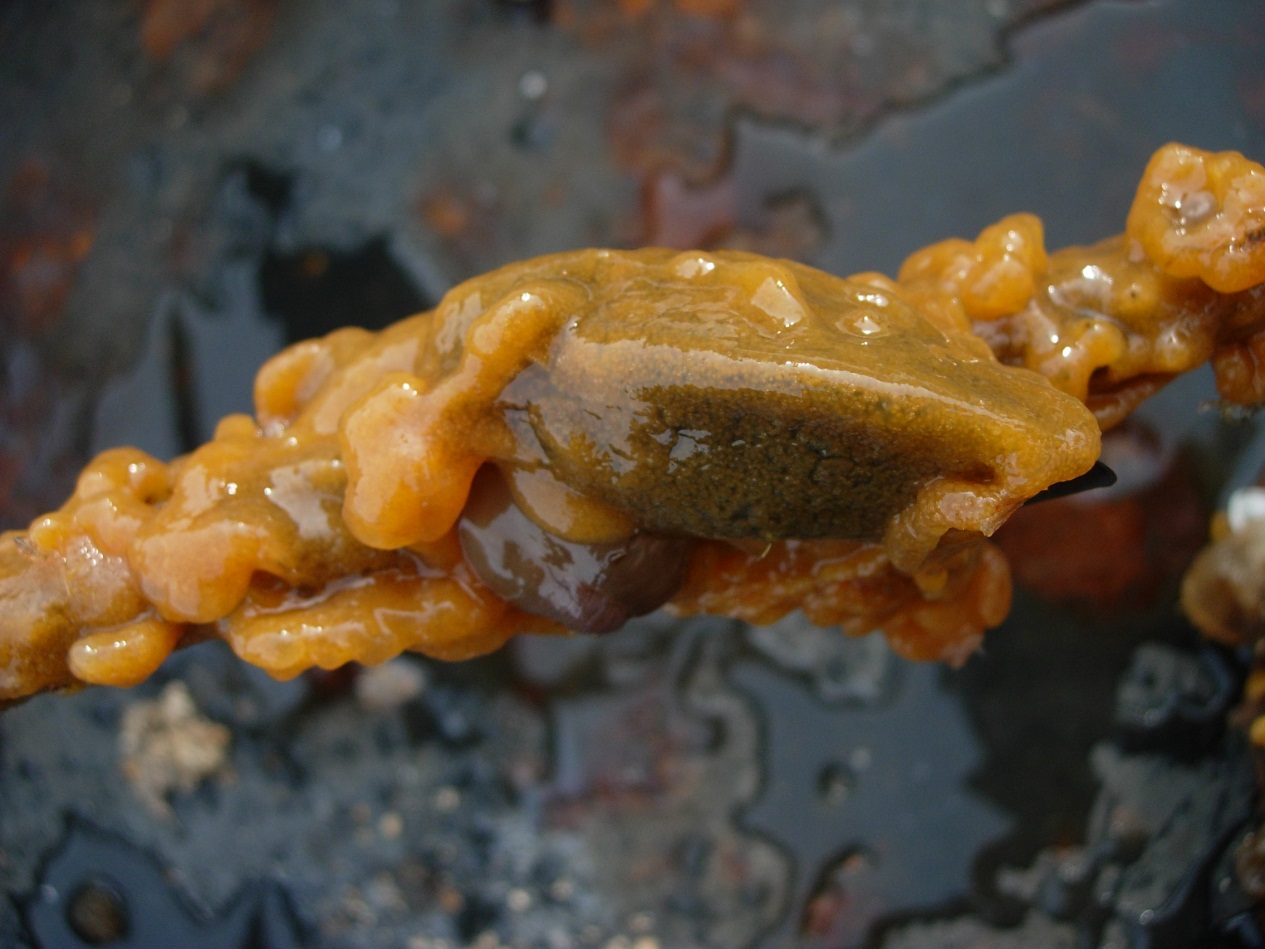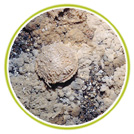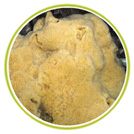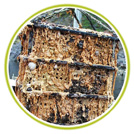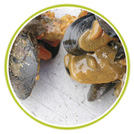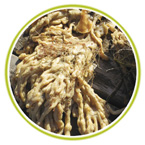Pancake Batter Tunicate
Didemnum vexillum
Report it
If you think you have found an aquatic invasive species:
- do not return the species to the water
- take photos
- note:
- the exact location (GPS coordinates)
- the observation date
- identifying features
- contact us to report it
Pancake Batter Tunicate is an invasive colonial tunicate that forms a dense mat of colonies, with dripping lobes that resembles pancake batter.
On this page
- Origin and distribution
- Identifying features
- Habitat
- Ecological and economic impacts
- Mode of arrival
- Mode of dissemination
- Government action
- For further information
- References
Origin and distribution
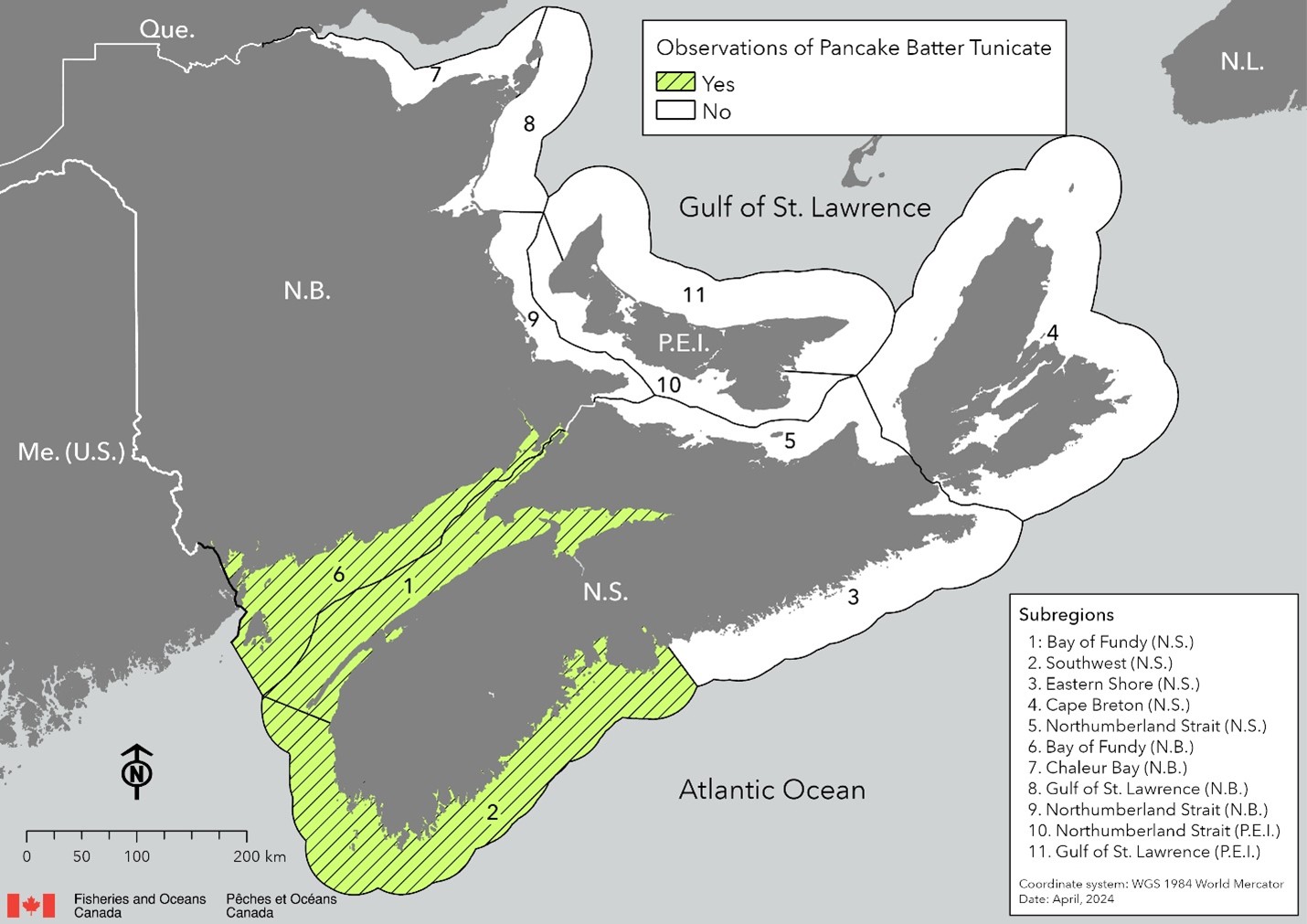
Observed distribution of Pancake Batter Tunicate in subregions of Canada’s Maritime provinces.
Note: Observation within a subregion does not mean the species is found throughout it. Lack of observation within a subregion does not mean the species is absent from that subregion. It means that it has not been observed there.
There is evidence that Pancake Batter Tunicate may have originated in Japan. This species was first reported from British Columbia’s Strait of Georgia (Thetis Island, Okeover Inlet, Jedediah Island, Agamemnon Channel) and on the west coast of Vancouver Island (Lemmens Inlet) in the early 2000s. In 2013, this species was confirmed in the Minas Basin off of Parrsboro, Nova Scotia. To date, the distribution of this species on the east coast of Canada is believed to be limited to the Bay of Fundy (New Brunswick and Nova Scotia coasts) and southwest Nova Scotia.
Identifying features
- Dense colonies that resemble pancake batter
- Colour is variable: white cream, yellow or light brown
- Presence of white spots
- Colony size is highly variable, but colonies can measure over 100 centimetres long
- Individuals within colonies are 1-2 millimetres long
Similar species
Pancake Batter Tunicate can be mistaken for other invasive tunicates such as the Violet Tunicate, but it is never red or bright orange. It may resemble certain types of sponges, but their texture is gelatinous rather than spongy. Pancake Batter Tunicate can be distinguished from native tunicates by its white spots.
Habitat
Tunicates are typically found in sheltered areas, attached to rocks, eelgrass, seaweeds, other animals or on artificial structures such as:
- boat hulls
- buoys
- ropes
- anchors
- floating docks
- aquaculture gear
- wharf pilings
Ecological and economic impacts
Due to the aggressive colonizing abilities the Pancake Batter Tunicate may out compete other organisms for food and space, thereby altering the natural community dynamics. It may also threaten aquaculture, fishing and other coastal and offshore activities, increase the weight of the aquaculture cultivation gear, causing work to be more demanding. This leads to an increase of the operating costs for shellfish producers and processors.
Mode of arrival
Pancake Batter Tunicate was most likely introduced to North America through hull fouling and/or fragments in ballast water.
Mode of dissemination
Modes of transportation include:
- hull fouling of ships and boats
- fouling of fishing gear
- fishing trawls
- dredges
- colony fragments in ballast water
- movement of oyster and other shellfish stock or gear
- natural spread via currents
Government action
Fisheries and Oceans Canada is monitoring the distribution of invasive biofouling species (that is, aquatic species that live attached to hard surfaces) on the Atlantic and Pacific coasts to detect new invasions and track the spread of Pancake Batter Tunicate.
For further information
- Canadian Science Advisory Secretariat (CSAS) Publications
- Invasive Tunicate - Fact Sheet
- Biological synopsis of the invasive tunicate Didemnum sp. (PDF, 1,442 KB) Canadian Manuscript Report of Fisheries and Aquatic Sciences 2788, 2007
- Science advice from a risk assessment of five sessile tunicate species (CSAS SAR - 2012/049)
References
Daniel, K., and T. W., Therriault. Biological synopsis of the invasive tunicate Didemnum sp. Fisheries and Oceans Canada, Pacific Biological Station, 2007.
- Date modified:
